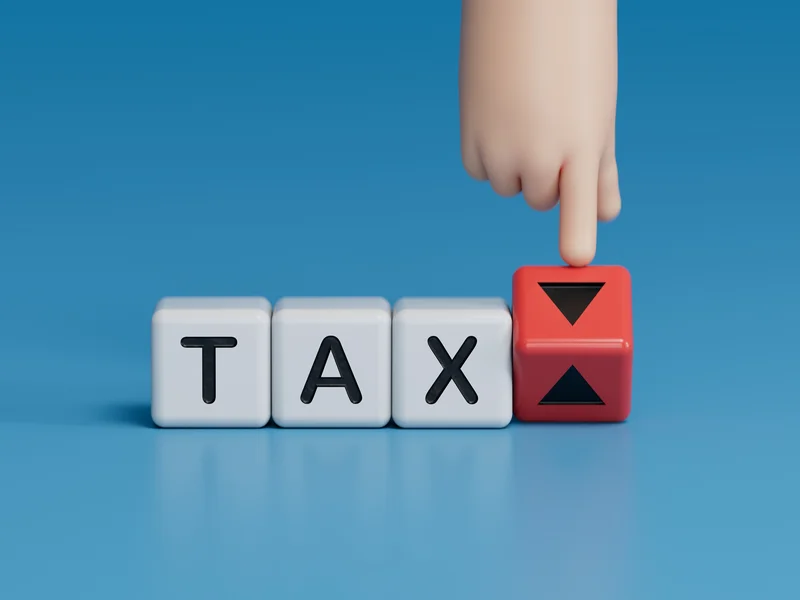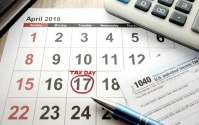The Unspoken Fiscal Contract
There is an AI-generated, 20-track album (plus 10 bonus tracks) dedicated to eliminating property taxes in Ohio. One might be tempted to dismiss this as a bizarre outlier, the kind of political theater that bubbles up on the fringes. But that would be a misreading of the data. From breakdancing protests in New Jersey to tax-payment raffles in Washington, the noise is a signal. A significant demographic—primarily baby boomers, who represent the largest share of homeowners—is mounting a serious campaign to dismantle a foundational pillar of local government finance. The move has sparked a debate over its generational impact, with many arguing that the Boomers Push to Eliminate Property Taxes Would Hurt Millennials, Gen Z.
This isn't just about a few hundred extra dollars on a tax bill. It's an attempt to unilaterally renegotiate an intergenerational fiscal contract that has underwritten American communities for a century.
The numbers are unambiguous. Property taxes are not a rounding error in municipal budgets; they are the bedrock. According to the Tax Foundation, these taxes account for the single largest source of revenue for state and local governments. That figure—27.4% of total state and local tax collections (as of fiscal year 2022)—is just the start. At the purely local level, the dependency is far more acute. Property taxes generate about 70% of all local tax revenue nationwide. In many states, that number climbs past 80% or 90%.
To advocate for the abolition of this tax is to advocate for the effective dissolution of municipal services as we know them. The idea of replacing it, as Jared Walczak of the Tax Foundation notes, is "virtually impossible in most states, at least without avoiding substantial economic harm." There is no magic fund to cover the cost of schools, fire departments, police, and road maintenance.
The revolt is fueled by a genuine economic stressor. Property values have exploded, rising by nearly 27%—to be more exact, an inflation-adjusted 26.8% since 2020. For homeowners on a fixed income, seeing a tax bill swell by that magnitude is a legitimate shock. The pain is real. But the proposed solution is akin to amputating a limb to treat a broken bone. It ignores the symbiotic nature of the system. Younger taxpayers fund Social Security, a system they won't draw from for decades, supporting today's retirees. In turn, older, wealthier homeowners have historically funded the local services—especially schools—that build the foundation for the next generation. This revolt is a movement to sever that second link.
A War on Illiquidity and Interdependence
The core argument from activists like Brian Massie, the Ohioan behind the anti-tax album, centers on two points: the illiquidity of their wealth and a rejection of communal obligation. The first point is valid. A home's equity is not cash. You can’t use it at the grocery store. The wealth is on paper, while the tax bill demands real dollars. This is a classic asset-rich, cash-poor dilemma, and it deserves a serious policy response.

But the second argument is where the logic begins to fray. "I've been in this house 20 years, and I've paid over a hundred thousand dollars for local education," Massie states. "I've never sent a child. I've never benefited from the services at all."
This is the point in the analysis where the argument shifts from a discussion of financial hardship to a fundamental misunderstanding of public finance. I've analyzed countless business models, and none of them operate on the principle that you only pay for the specific services you consume on a given day. Taxes are not an à la carte menu. They are the subscription fee for living in a functional, stable society. An educated populace, reliable emergency services, and maintained infrastructure benefit every single property owner, whether they directly "use" a school or not. They are precisely what makes a property valuable in the first place. What, exactly, is the market value of a four-bedroom house if the fire department is no longer funded?
This sentiment is creating a dangerous feedback loop within the housing market. The tax revolt is, in part, a push to allow older Americans to age in place without financial strain. Yet this very trend is strangling housing supply for younger generations. Data shows 40% of older homeowners have remained in their homes for 20 years or more. This stasis, partly driven by a desire to hold onto assets and avoid higher tax assessments elsewhere, has pushed the median age of a first-time homebuyer to a record 38 years old.
By refusing to downsize, older generations are hoarding not just wealth, but physical housing stock. A rising property tax bill, while painful, often acts as a rational economic nudge to downsize, freeing up larger homes for growing families. The movement to eliminate it is an attempt to remove this natural market mechanism, further calcifying the housing market and deepening the generational divide. It’s a demand to be insulated from the economic consequences of their own asset accumulation, consequences that would otherwise benefit the broader housing ecosystem.
A Calculated Dereliction
Let's be clear. The push to abolish property taxes is not a fiscally conservative movement. It is a radical, emotionally driven campaign that willfully ignores the mathematical consequences. It proposes to solve a cash-flow problem for one demographic by creating a solvency crisis for everyone.
There are targeted, intelligent solutions to this problem. Property tax "circuit breakers" that provide relief when taxes exceed a certain percentage of a fixed income are a rational approach. So are levy limits that cap a locality's total revenue growth, forcing fiscal discipline without cratering the system. These policies address the legitimate pain of rising tax burdens on retirees.
But those solutions aren't as simple or emotionally resonant as "Axe the Tax." The current revolt isn't about finding a balanced solution. It is, as one analyst put it, a "dereliction of civic duty." It's an attempt by one generation, which benefited from publicly funded services their entire lives, to pull up the ladder and opt out of funding those same services for the next. The math doesn't support it, and the social contract can't withstand it.









